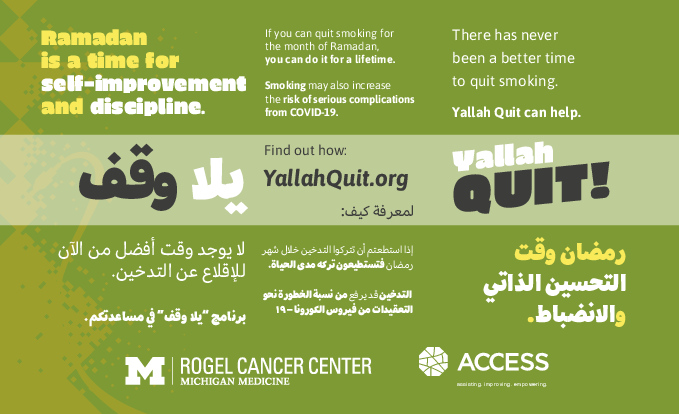T4H Programs
There are 4 programs to choose from and participants can enroll in as many as they want:
- Eat healthier
- Be more active
- Quit smoking
- Get screened for colorectal cancer (CRC)

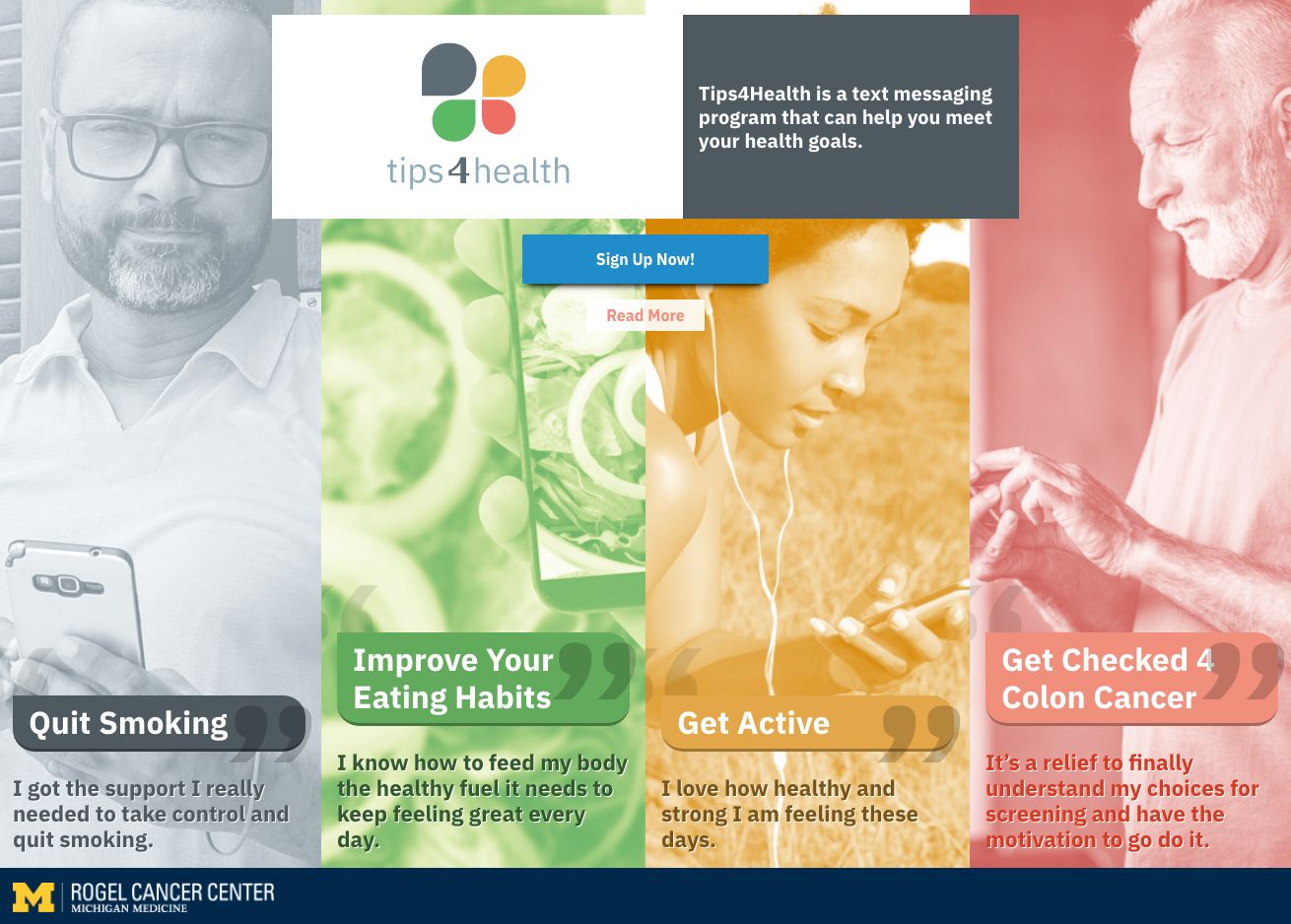
An interactive, personalized, text-messaging program to help participants prevent cancer and lead a healthy life.
T4H is a nationally available resource that was created by the National Cancer Institute (NCI) and the CHCR. Participants get several texts per week for about 6 weeks. Text messages include healthy tips, strategies to stay on track, and check-ins.
There are 4 programs to choose from and participants can enroll in as many as they want:
The first version of T4H included the 3 primary programs:


The second version of T4H added a new program to promote screening for colorectal cancer (CRC). It targets people age 50 and older at average risk for developing colon cancer and encourages them to get a colonoscopy or complete a home stool test.
The CRC program includes interactive text messages and additional educational components on a dedicated website. The website contains information and video stories related to:
The text messages and website content were highly tailored to each participant’s testing preference, as well as their barriers and motivators to getting tested.
The CRC screening program was built on findings from an earlier project called Inside Health led by Dr. Ken Resnicow. Inside Health used a tailored print newsletter to encourage CRC screening in an African Americans in Detroit.

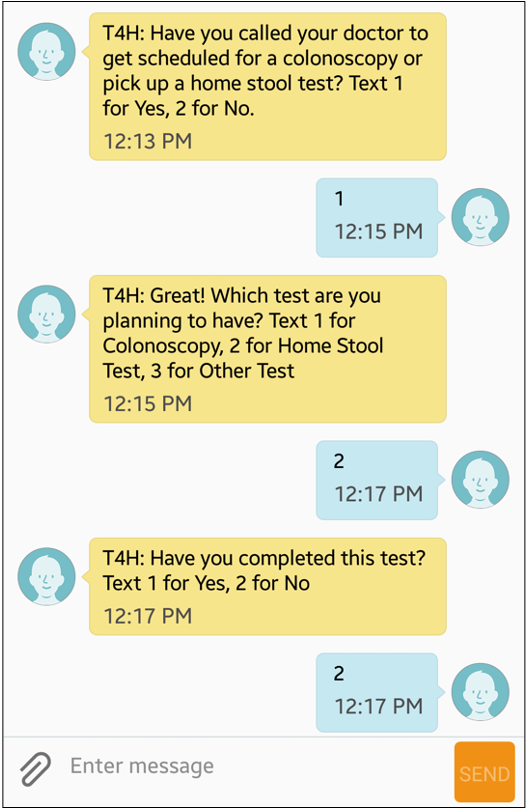
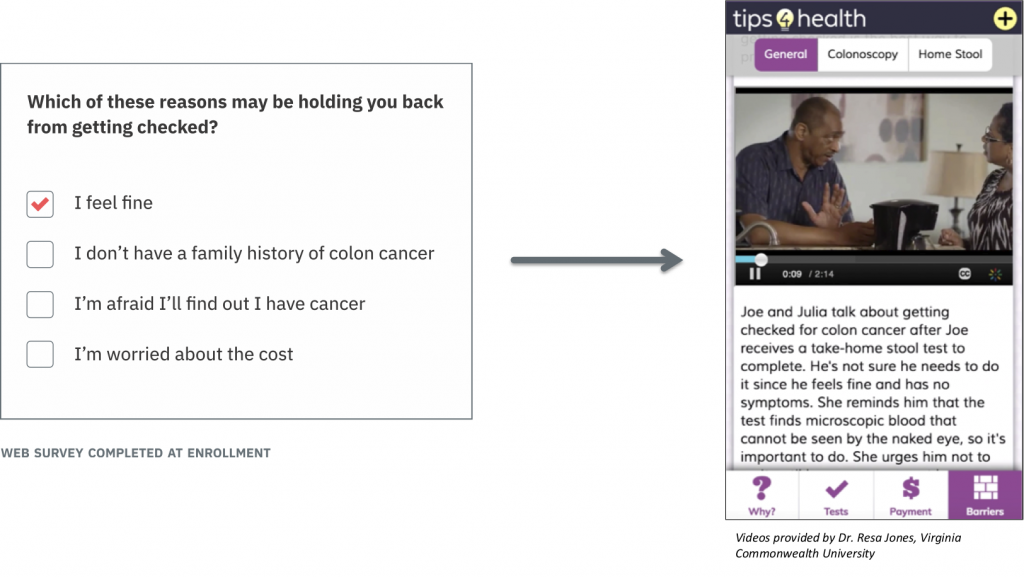
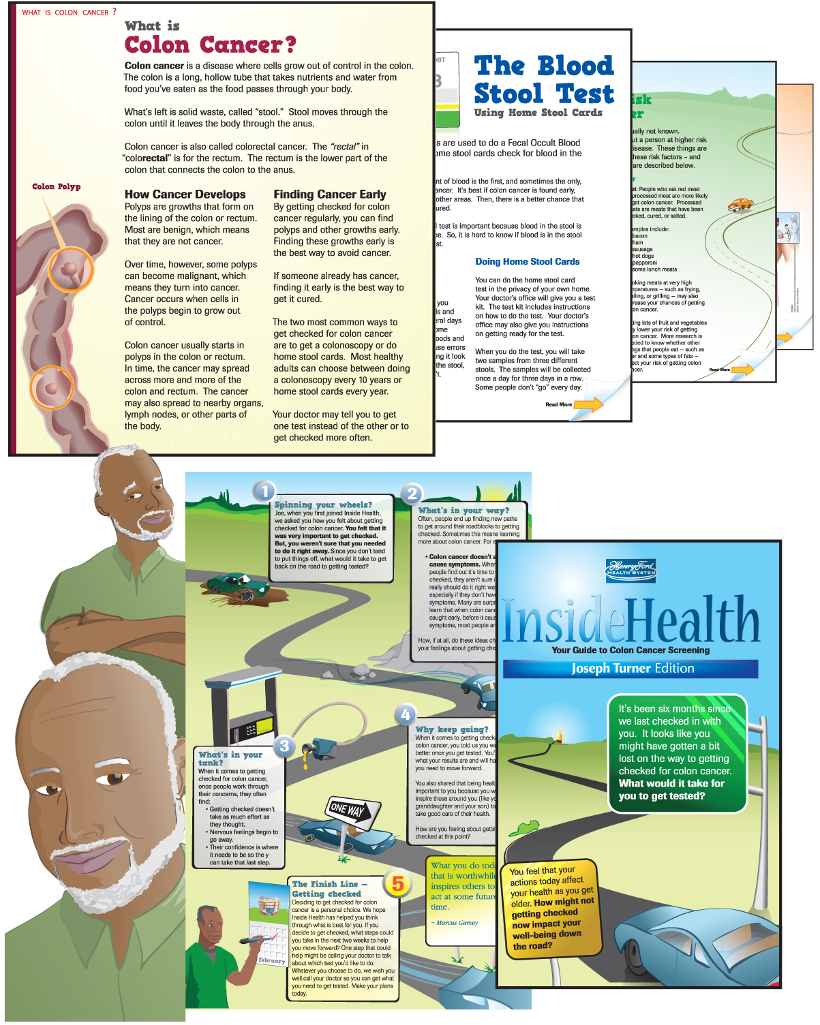
The third version of T4H included a few updates:
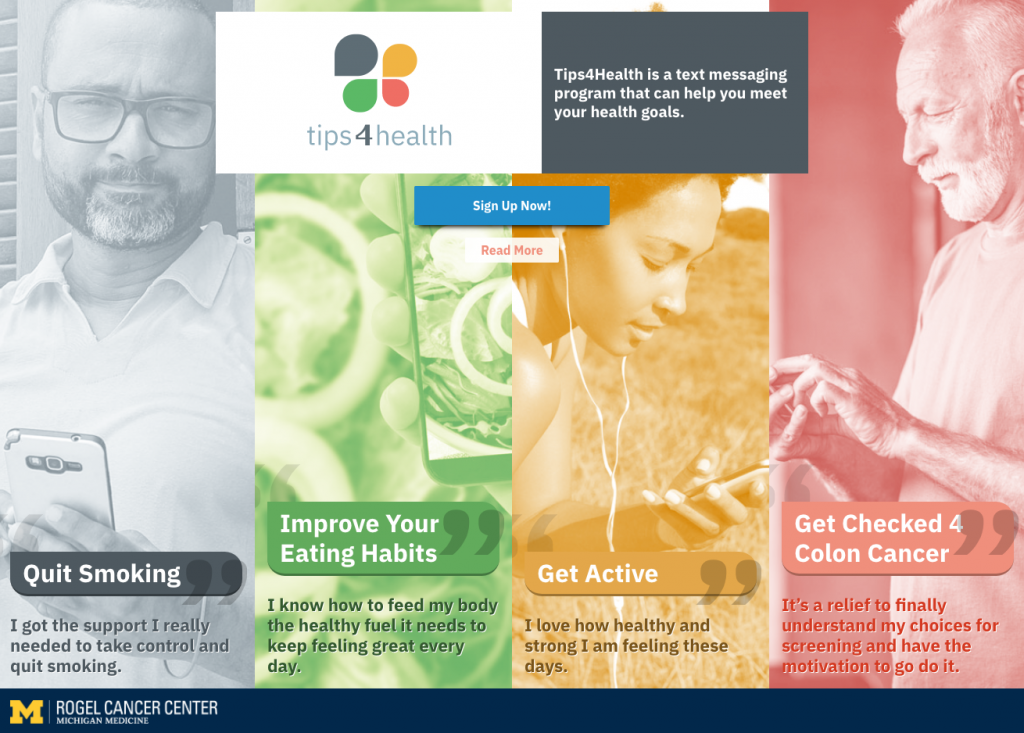
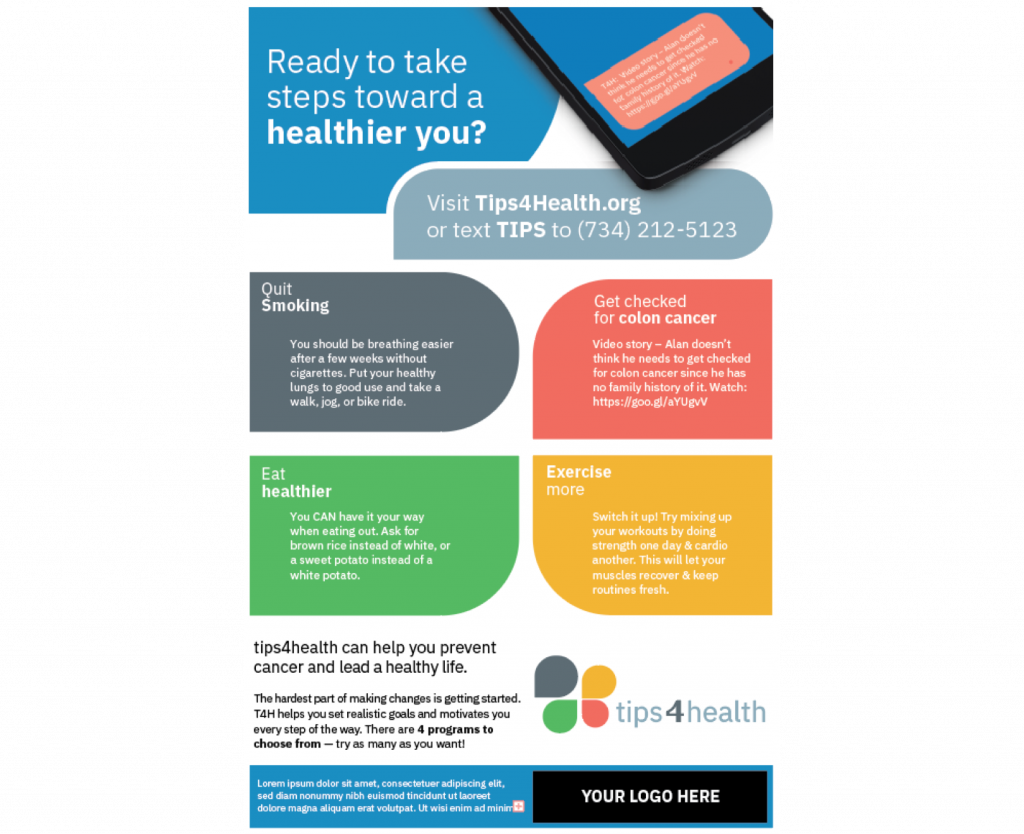
This version of T4H uses culturally specific, bilingual messaging to help the Muslim community quit smoking during Ramadan. Southeast Michigan is home to some of the largest Middle Eastern and North African populations in the US.
We partnered with the Dearborn-based organization ACCESS – the largest Arab American community nonprofit in the US – to update T4H smoking cessation messages to create a campaign called Yallah Quit. Yallah is Arabic for “Let’s go!” We worked closely with community stakeholders at ACCESS to modify messaging to ensure relevance and cultural humility. For example, smoking hookah is a social activity that is sometimes considered less dangerous than smoking cigarettes, though both increase cancer risk significantly.

